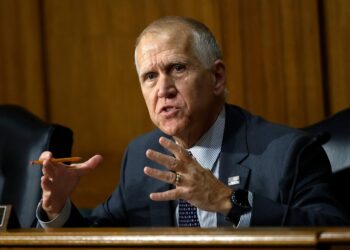Introduction
With success comes accountability. So it is with the crypto sector. As the sector grows in size, importance and sophistication, the United Kingdom’s financial policymakers – government, parliament, and regulatory bodies (such as the Financial Conduct Authority (FCA), the Bank of England (BoE), and its Prudential Regulation Authority (PRA)) – will need to determine what the appropriate public policy response should be. Judging from recent statements by these authorities, that time appears to be fast approaching.
And first in line are stablecoins and crypto wallet providers.
The Government of the United Kingdom
It is worth stating at the outset that the gradual approach to crypto taken by the UK government has been advantageous in avoiding a knee-jerk public policy reaction to a new and fast-growing sector, especially one in which use cases are still evolving and experimentation is common. Since 2018, the finance ministry has published a series of papers outlining its developing perspective on the crypto sector, but it has refrained from rushing into legislation. It also published a set of tax guidelines for the taxation of crypto transactions.
HMT Announcements in April 2022
In the most pro-crypto announcement yet from the UK government, the UK’s finance ministry, Her Majesty’s Treasury (HMT), issued a series of releases on 4 April 2022. These included:
- HMT’s response to its consultation “UK regulatory approach to cryptoassets, stablecoins, and distributed ledger technology in financial markets: Response to the consultation and call for evidence”,
- a speech by John Glen, Economic Secretary to the Treasury, at the Innovate Finance Global Summit; and
- a Tweet by HMT announcing that it had instructed the UK’s Royal Mint to create an NFT.
A Future Regulatory Regime
The government intends to regulate stablecoins, paving the way for their use as a recognized form of payment in the UK. This is described as part of broader plans to make the UK a “global hub for cryptoasset technology and investment”.
The UK government has a stated objective of “same risk, same regulatory outcome”, and wishes to prevent “opportunities for regulatory arbitrage between traditional e-money and stablecoins”. At the heart of the UK government’s plans is the belief that regulation would enable:
“responsible industry actors to innovate while ensuring the protection of consumers and the market”.
The UK government sees a huge potential for stablecoins to promote competition, as well as deliver greater speed, efficiency, and resilience. It also sees stablecoins potentially supporting financial inclusion and economic growth. Therefore, it concludes that:
“with appropriate protections, stablecoins could play an important role in facilitating improvements and competition in payments”.
Intentions to make the UK a crypto-friendly jurisdiction will, of course, be music to the ears of UK-based crypto entrepreneurs, investors, customers/users, and enthusiasts.
What Will the Future UK Regime Entail?
Although it has yet to flesh out exactly what the regulatory regime will look like, the proposed future legal framework will do the following:
- The UK will bring in the new regime by revising existing legislation on electronic money (e-money) and payments, as well as other relevant legislation, such as expanding the definition of e-money to include stablecoins.
- The future regime will regulate stablecoins used as a means of payment and will capture stablecoins that reference fiat currencies (i.e. a single currency or a basket of currencies).
- In addition to prudential and conduct requirements, the future UK regime will demand that stablecoins arrangements ensure convertibility into fiat currency, at par, and on demand.
- The UK will bring crypto wallet providers and other entities providing stablecoin activities for payments in the UK into the regulatory perimeter. They will be subject to prudential, conduct, safeguarding and other requirements.
- Like e-money issuers, stablecoin issuers and wallet providers will be subject to authorization by the FCA. If they are deemed to be “systemic”, they would also be subject to BoE supervision.
- Importantly, the proposed regime will exclude algorithmic stablecoins, and those that are backed by assets other than fiat currency.
The government hopes that its proposed approach will provide greater clarity for firms and consumers and make the UK an attractive venue for crypto activity and innovation.
Proposal on Crypto Promotions
Earlier in the year, on 18 January 2022, HMT set out the government’s plan to bring the promotion of cryptoassets within the scope of the UK’s Financial Promotions legislation. This will subject qualifying cryptoassets to FCA rules, similar to those applied to the promotion of other financial assets such as stocks, shares, and insurance products.
Bank of England
On 24 March 2022, the Financial Policy Committee (FPC) of the Bank of England (BoE) published a paper titled: “Financial Stability in Focus: Cryptoassets and decentralised finance” (Read: DeFi Planet’s summary of the paper: “Bank of England Sets Out Its Views On Crypto and DeFi”).
In it, the BoE noted that crypto and DeFi did not yet pose significant risks to the stability of the UK financial system. However, it added that, as the crypto sector grows in size and importance, risks could potentially arise from interlinkages between the crypto sector and the traditional financial sector.
The publication is the Bank of England’s most important statement to date on the nascent crypto-economy. Having initially dismissed crypto as a passing fad, and then more recently treated it like a threat, the BoE now appears to be gearing up to engage with it as an important new segment of the economy – one with implications for financial markets, payments, and UK financial stability.
The BoE’s focus on the potential for financial stability risks (from stablecoins and DeFi in particular) as preconditions for potential regulatory rule-making is beneficial from a proportionality standpoint. Nonetheless, the crypto and DeFi sectors – as well as regulated banks wishing to enter them – should treat the publication as an early warning of an impending, and potentially restrictive, regulatory regime in the UK.
Prudential Regulation Authority (PRA)
In an effort coordinated to coincide with the BoE’s publication above, the PRA published a “Dear CEO” letter, also on 24 March 2022, addressed to the CEOs of PRA-regulated banks (and other financial institutions) to:
“remind them of relevant obligations under PRA Rules, and to communicate the PRA’s expectations regarding firms’ exposures to cryptoassets.”
In the letter, from Sam Woods (CEO of the PRA, and a BoE deputy governor), the PRA noted that it was aware of increased interest from some banks and investment firms in gaining exposure to the crypto market (either as agent or principal), or increasing credit exposures to crypto (directly to cryptoassets or to crypto entities), or providing operational services such as custody arrangements. Given the prudential risks that such would entail, the PRA stated that:
“Firms should consider how or whether the characteristics of these markets are sufficiently captured in their risk management framework.”
Since the existing prudential regime (which is largely based on the standards set by the Basel Committee on Banking Supervision (BCBS)) was not designed with crypto exposures in mind, the PRA added:
“While the regulatory framework provides a structure to consider such risks, the methodologies and calibrations will likely need to be adjusted, in some cases substantially, to ensure that firms are appropriately and prudently considering and capitalising the risks.”
Pending the updating of the bank prudential framework to include consideration of crypto exposures, the PRA believes that a combination of the following will provide firms with an appropriate interim treatment.
- Strong Risk Controls – Crypto risks should be considered fully by the board and senior management, and banks should adapt existing risk management strategies and systems to reflect the different risk profiles of various crypto activities.
- Prudential Framework – The PRA expects firms to consider the full prudential framework when assessing and mitigating risks and exposures to cryptoassets.
- Pillar 1 – The PRA sets out some interim guidance on how risks and associated capital requirements should be assessed. For example, for Market Risk, firms are expected to take into account the “extreme volatility and/or limited price history of these assets” in determining an appropriate capital requirement (which may well lead to a capital requirement of 100% of the current value of a firm’s position).
- Pillar 2 – The PRA stated that firms should apply the “Pillar 2 Framework” (which is designed to address risks not adequately captured by the Pillar 1 Framework) by setting out their consideration of risks relating to crypto-exposures in their ICAAP.
Financial Conduct Authority (FCA)
Similarly, the FCA also published, on 24 March 2022, a document titled: “Notice to all FCA regulated firms with exposure to cryptoassets” which sought to remind regulated firms of their “existing obligations” when dealing with the crypto sector.
The FCA stressed the importance of firms being clear with customers on which aspects of their businesses are regulated and which are unregulated. It also noted the need for firms to assess the risks of dealing with cryptoassets and to have appropriate systems and controls in place.
- Being clear with customers – Since much of the cryptoasset sector continues to sit outside of the FCA’s current regulatory remit, the FCA expects firms to ensure that consumers understand the extent of business that is regulated and to clearly distinguish those elements which are unregulated business.
- Financial Crime and registration of cryptoasset business – As the FCA is already the anti-money laundering and counter-terrorist financing supervisor for crypto businesses in the UK, it reminded firms of the requirement to be registered with the FCA to continue to carry on business. It should be noted, however, that many firms have complained about severe delays in the FCA’s registration process for this. See these Bloomberg and CoinDesk articles for more information.
- Having appropriate systems and controls in place – The FCA expects all authorized and registered firms to have appropriate systems and controls in place to mitigate the risk of being misused for financial crimes. As part of this, all firms should check to see if the cryptoasset businesses they interact with are listed on the FCA’s Unregistered Cryptoasset Businesses page.
- Assessing the risks – Firms are expected to assess the risks posed by a customer whose wealth or funds are derived from the sale of cryptoassets, or other cryptoasset related activities, using the same criteria that would be applied to other sources of wealth or funds.
- Prudential considerations – In the absence of a specific prudential regime for the crypto sector, the FCA expects FCA-regulated firms to consider the application of existing FCA rules, and to assess and mitigate the potential for harm to clients, the markets in which the firm operates, and the firm itself, that could arise from all of their business.
- Custody considerations – The FCA notes that its Client Assets regulations may apply when firms carry out regulated activities involving custody of certain cryptoassets (such as security tokens).
FCA’s Current Approach
It is worth adding that, nearly two weeks earlier, on 11 March 2022, the FCA had issued a statement warning UK crypto ATM operators to “shut their machines down or face enforcement action”.
Similarly, the FCA has previously published negative warnings about crypto in general, whilst at the same time asserting that some crypto activities may already be caught within the FCA’s ambit i.e. so-called “regulatory perimeter”. All this whilst it insists determination should be on a case-by-case basis, with the onus on the firm in question to do the complex legal and regulatory analysis despite the absence of crypto-specific rules.
Since the FCA does not yet have a regulatory regime in place for the crypto sector, it is effectively asking the industry to wait for such a regime before conducting business. In a fast-moving sector like crypto, this is not really practical. So, the effect of the FCA’s warning may simply be a migration of such activities to other jurisdictions outside the UK.
What Type of Regulatory Intervention is Needed?
The FCA is clearly concerned about consumer protection and ensuring orderly financial markets, and rightly so. Crypto, like other financial sectors and assets, presents risks of fraud, theft, cyber security, unfair treatment of customers, and market manipulation, all of which must be addressed.
However, the FCA’s overly enforcement-led approach to the crypto sector – in particular, centralized authorities such as exchanges and other crypto service providers – (like the US SEC’s) is arguably counter-productive.
The FCA should instead focus on devising a dynamic, outcomes-focused, and principles-based regulatory regime that can adapt flexibly as the sector develops – one that promotes competition and is decidedly pro-innovation. This would be in line with the UK government’s stance.
Regulatory intervention in such a new and innovative sector, one that could not be envisaged in the current rulebooks, should begin with rule-making (once pre-intervention observation, comprehension, and risk assessment have taken place), followed by enforcement.
FCA ‘CryptoSprint’ Event in May 2022
It was, therefore, a positive development that, on 4 April, the FCA announced a two-day CryptoSprint Event, set for 10 – 11 May 2022.
The event is intended to inform regulatory policy changes to be developed for the emerging crypto sector. The stated aim of the event is to:
“increase the FCA’s understanding of emerging cryptoasset technologies and any of the regulatory limitations requiring further consideration, while ensuring we support beneficial innovation and mitigate risks to market integrity and consumers.”
This should be applauded as a first step in setting a new tone of dialogue with the crypto industry and the wider public with a view to devising an appropriate regulatory regime for the crypto sector in the UK.
Conclusion
- Although the UK government has sensibly taken a gradual approach to crypto over the past few years, the UK’s regulators have arguably come across as overly defensive and focused only on the “risks” of crypto, rather than a more balanced “risks and opportunities” approach. This has been a little surprising given the UK’s otherwise pro-FinTech stance.
- It is a welcome development that the UK government has chosen to take a pro-crypto stance (which is consistent with its pro-FinTech policy posture), by articulating its ambitions to turn the UK into a global hub for cryptoasset technology and investment.
- To make this happen, the UK government is expected to present a Bill to parliament later this year detailing which aspects of crypto should be regulated and how, as well as how regulators should address innovations in what is, after all, still a fast-evolving crypto sector.
- Against this backdrop, the UK’s financial regulators should immediately adopt a more positive stance, one that is appropriately nuanced and recognizes crypto as a new and important development, and its underlying blockchain technology architecture as a potentially transformative general-purpose technology.
If you would like to read more articles like this, visit DeFi Planet and follow us on Twitter, LinkedIn, Facebook, and Instagram.





















